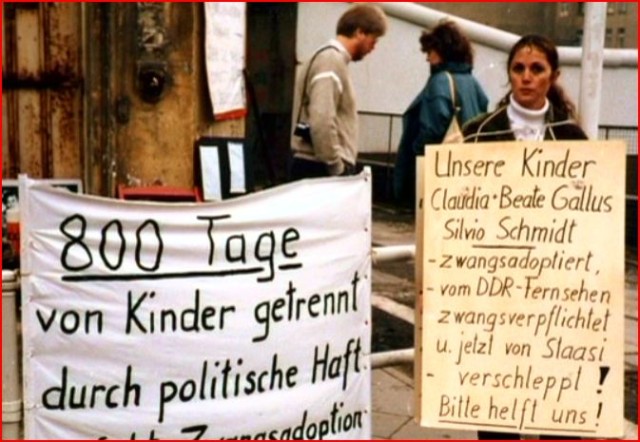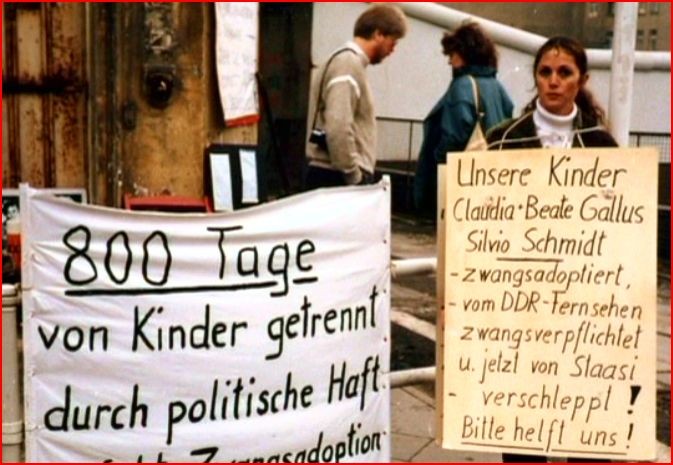BERLIN,Germany - Two military policemen on duty at Checkpoint Charlie touched the life of a victim of communism in 1984 and 1985.
Now, 27 years later, that lady wants to contact those MPs who were on duty at Checkpoint Charlie so she can thank them for their kindness.
On Oct. 7, 1984, Jutta Gallus planted herself at Checkpoint Charlie, the Allied border crossing in Berlin, with a placard around her neck reading: "My children have been forcibly given up for adoption! Please help us!" Gallus became a daily fixture at Checkpoint Charlie, demonstrating from dawn to dusk drawing the attention of curious tourists and journalists.
Her image and the tale of her fight spread around the world. In a recent interview at the U.S. Forces Liaison Office in Wiesbaden, Gallus who has since remarried and is now Jutta Fleck, recalled her turbulent past and the two MPs who were so kind to her 27 years before.
She described them as about 5 feet 7 to 9 inches tall, slim and about 25 years old. That would put them in their early 50s today.
The MPs used to put her placards inside the checkpoint hut at night so they would not be vandalized by communist sympathizers.
One of them gave her tea from a thermos flask when it was cold outside. Apparently this MP visited the Checkpoint Charlie Museum in 2006 and saw a picture of Fleck at the exhibition and said, "I know that woman."
Fleck said the presence of the American MPs at the checkpoint made her feel completely safe while she demonstrated, even though the East German Army guards would come right up to the demarcation line. "You just feel stronger," she said. "The Woman from Checkpoint Charlie" is now even a film and book.
In 1982, Fleck tried to escape with her two young daughters by pretending to take a vacation in Romania, where she hoped to escape to the West through the less stringent border controls.
But the East German government foiled her plan and the family was forcibly separated.
Fleck was thrown into prison, while her two daughters, aged 9 and 11, were put in a children\'s home.
Two years later, the West German government bought Fleck's freedom, but the East German regime refused to let her take her children to the West. "Checkpoint Charlie was a legend in Berlin," Fleck said in an interview with Berlin daily Tagesspiegel, explaining why she chose to demonstrate there. "Besides, there were tons of tourists there - it was just what I needed," she added.
Gallus proved untiring in her efforts to be reunited with her children in West Germany.
Not surprisingly, her public demonstrations embarrassed and annoyed the two German governments, who were at pains to maintain good diplomatic relations.
But her tactics worked.
In 1988, six years after Gallus first began protesting, her daughters were allowed to leave and join their mother in the West. "I simply wanted to show that a normal person without weapons is in a position to change things," Fleck said when the film of her story premiered in Berlin.
Fleck now works for the state government of Hesse in Germany as chief of a project to evaluate the history and legacy of the former East German regime.
One part of her mission is to educate young people about the way things really were under the communist dictatorship.
People with information on the identity of the two MPs can send an e-mail to the U.S. Army Europe Office of the Provost Marshal at webinfo@eur.army.mil.


Social Sharing